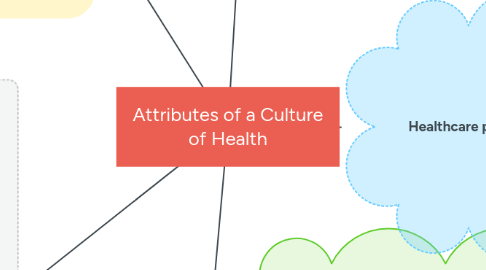
1. Individuals within society
1.1. Implement safe medication practices
1.1.1. Only use medication as directed by a healthcare professional
1.1.2. Only take medication that belongs to you and don't share your medication with others
1.1.3. Secure medications through safe storage and disposal practices
1.2. Be your own health advocate
1.2.1. Talk openly with your healthcare providers about your condition and both drug and nondrug options
1.2.2. Make sure to know your medication's side effects
1.2.3. Don't be afraid to ask questions
1.3. Engage in positive alternatives to medication
1.3.1. Participate in daily exercise, maintain a healthy diet, enjoy some free time/hobbies, etc.
1.4. Take action in your community
1.4.1. Serve as a positive example by actually "practicing what you preach"
1.4.2. Share your knowledge with others
2. Government
2.1. Proper regulation of drugs by FDA
2.1.1. Ensures that pharmaceutical companies are actually producing safe and ethical medications, and publishing accurate information
2.2. Public policy/laws in place that promote a healthy culture
2.2.1. Holds certain groups liable for participating in proper medication practices
2.2.2. Certain laws could make healthcare more attainable and affordable for everyone
3. Resources
3.1. Facilities available for health improvement
3.1.1. Make support facilities and services available to all, such as gyms, counseling/therapy services, and rehabilitation/recovery programs
3.2. Correct and consistent education available to all regarding health practices
3.2.1. Have plenty of resources available for education on subjects, such as websites and community programs
3.2.2. Make sure all information available is correct and therefore the same, ensuring proper education
3.2.3. Start better health education earlier in schools to ensure that everyone has access to it
4. Healthcare providers (doctors & pharmacists)
4.1. Modify prescribing practices
4.1.1. Actually listen to patients' symptoms and wants in a medication
4.1.2. See if the problem can first be fixed by lifestyle changes before immediately prescribing medication
4.2. Proper knowledge of medications prior to prescribing
4.2.1. Know all of the possible side effects of a medication and make sure those are communicated to the patient before prescribing
5. Pharmaceutical companies
5.1. Research and development of new drugs
5.1.1. New drugs result in constant improvement of medications, which would then improve society
5.1.2. More research results in a better understanding of how both drugs and conditions function
5.2. Proper publication/representation of drugs
5.2.1. Makes sure that both doctors and patients are aware of the possible side effects of a medication
5.2.2. Doesn't over-emphasize the benefits and under-emphasize the harms

